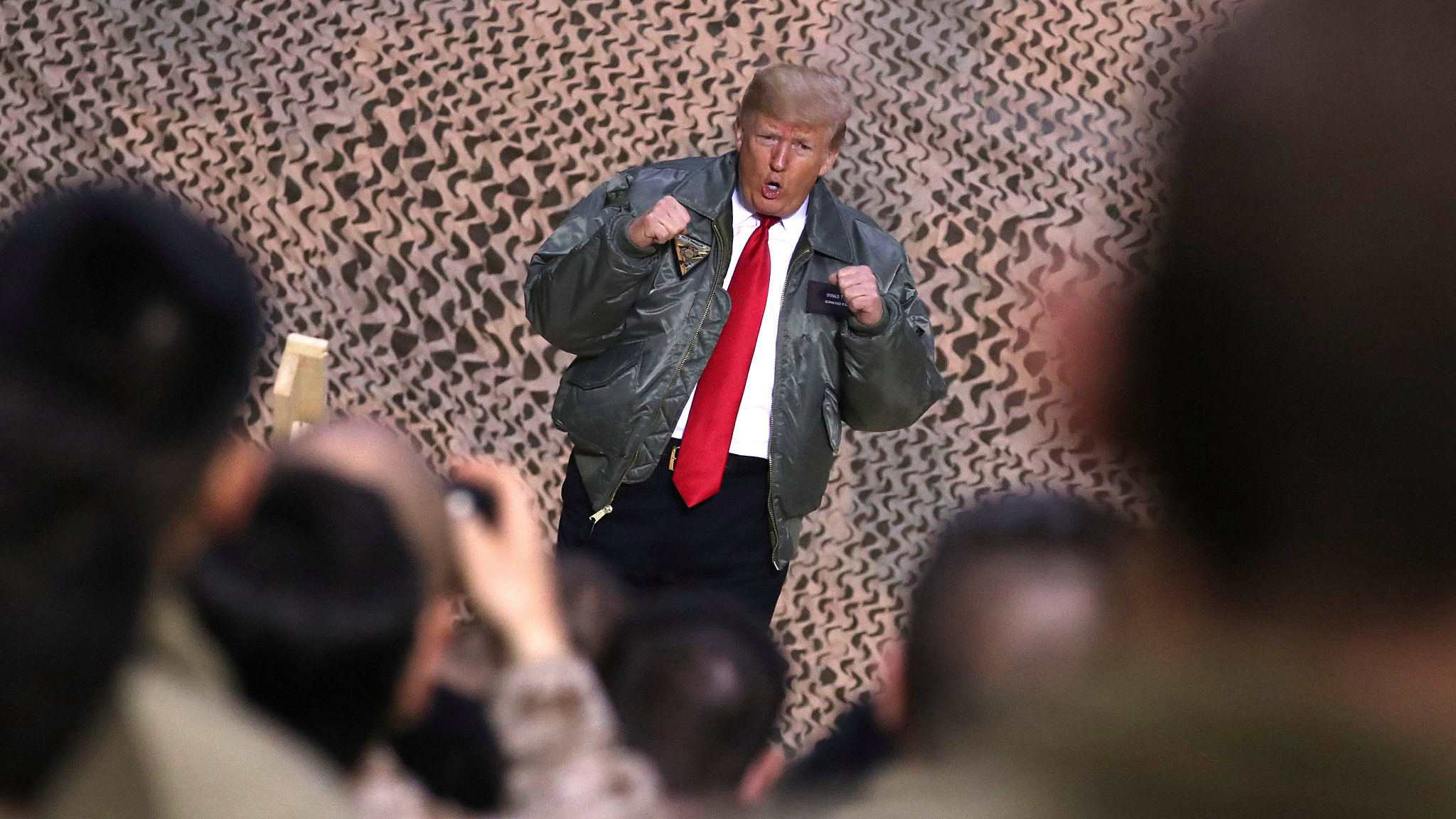
Analysis
08:46, 28-Dec-2018
Analysis: Trump ends U.S. 'policeman' role. What next?
Updated
07:51, 31-Dec-2018
CGTN's Zhao Yuanzhen
01:33

U.S. President Donald Trump made a surprising Christmas visit to U.S. forces in Iraq earlier this week, and his "gift" to the troops there came in the form of an announcement:
"The United States cannot continue to be the policeman of the world," he told U.S. army personnel. "It's not fair when the burden is all on us, the United States."
But Trump's message was delivered days before he landed in Iraq.
Last week, the U.S. president announced his decision to pull all 2,000 U.S. troops out of Syria, triggering fierce criticism at home and abroad, and prompting the resignation of Defense Secretary James Mattis.
Trump says he has his reasons.
He defended his withdrawal decision during his Iraqi visit, arguing that the mission of the U.S. in Syria to "strip ISIS (another name for ISIL) of its military strongholds" has been accomplished. More importantly, it is simply too costly and unfair for the U.S. to be the "policeman of the world" and "provide protection." After all, the burden should be on every player in the region, according to Trump.
Legitimate as it may sound, Hamed Mousavi, a professor of political science at the University of Tehran, points out that Trump's withdrawal from the Middle East's conflicts is prompted by domestic politics.
"Domestically speaking, a majority of Americans no longer support (U.S.) military intervention abroad, and this includes actually even Republican voters."
On "Face the Nation" program on CBS, U.S. Sen. Rand Paul threw his weight behind Trump, saying such a decision is "The president's right and I think the people agree with him. Let's rebuild America. Let's spend that money here at home."
He added that reducing America's military presence abroad is exactly what Trump has promised during his campaign trail in 2016.
With a public debt of around 22 trillion U.S. dollars, Mousavi suggests that Trump is being practical about the decision to pull out.
But what does the U.S. retreat mean for the region and the rest of existing players?
According to Mousavi, there will be "a vacuum of power" with the diminishing U.S. presence in the Middle East, which allows regional powers such as Iran, Saudi Arabia, and Turkey to have more leverage and also external powers, such as Russia, to play a more prominent role.
Among America's allies, perhaps Turkey is the only one to welcome Trump's withdrawal decision. Ankara has already reassured Washington it would finish the fight against ISIL in Syria.
As Mousavi analyzes, America's support of the Syrian Kurdish YPG militia has been a hurdle facing the improvement of U.S.-Turkey relations. With the U.S. military out of the picture, it would be more difficult for the Syrian Kurds to have a recognized autonomous region, which the Turks fear might encourage their Kurdish population to follow suit. Besides, the YPG also have good relations with the PKK, which Ankara labels as a terrorist group.
With conflicts and violence still besetting the peace process around the Middle East, from Syria to Yemen, it is hard to assert whether the fight against terrorism is really over.
(If you want to contribute and have specific expertise, please contact us at opinions@cgtn.com.)

SITEMAP
Copyright © 2018 CGTN. Beijing ICP prepared NO.16065310-3
Copyright © 2018 CGTN. Beijing ICP prepared NO.16065310-3